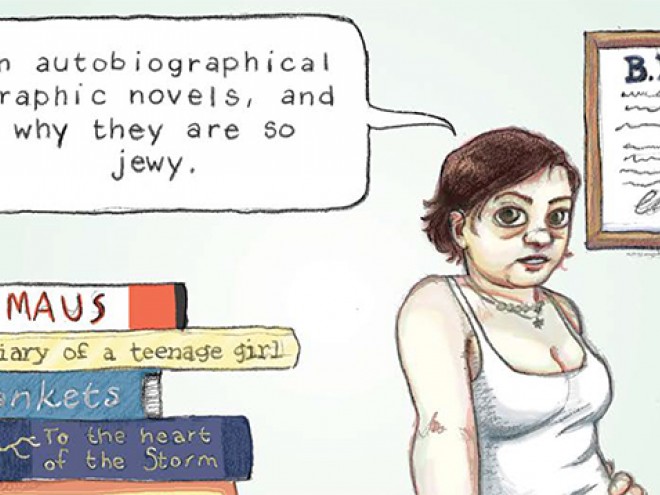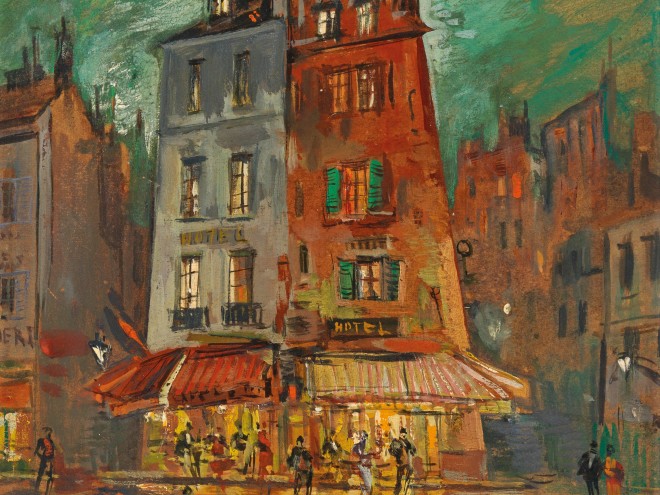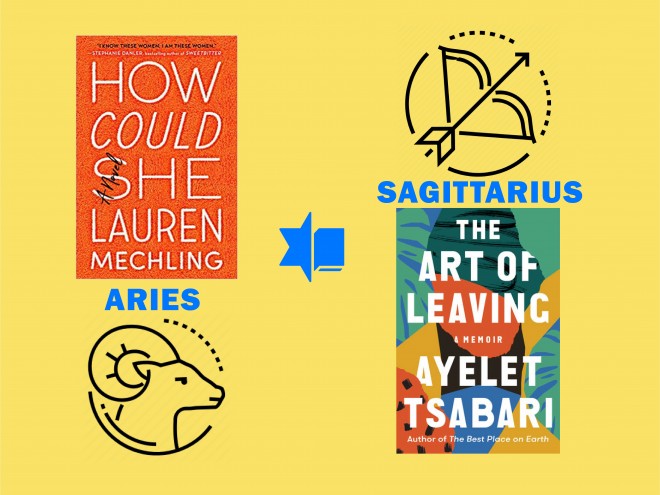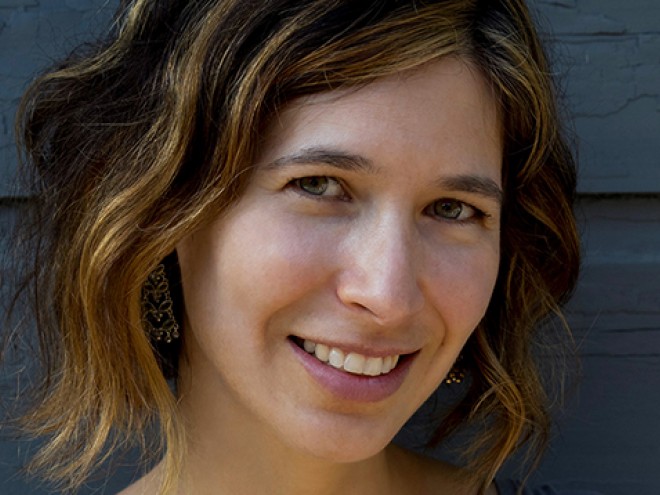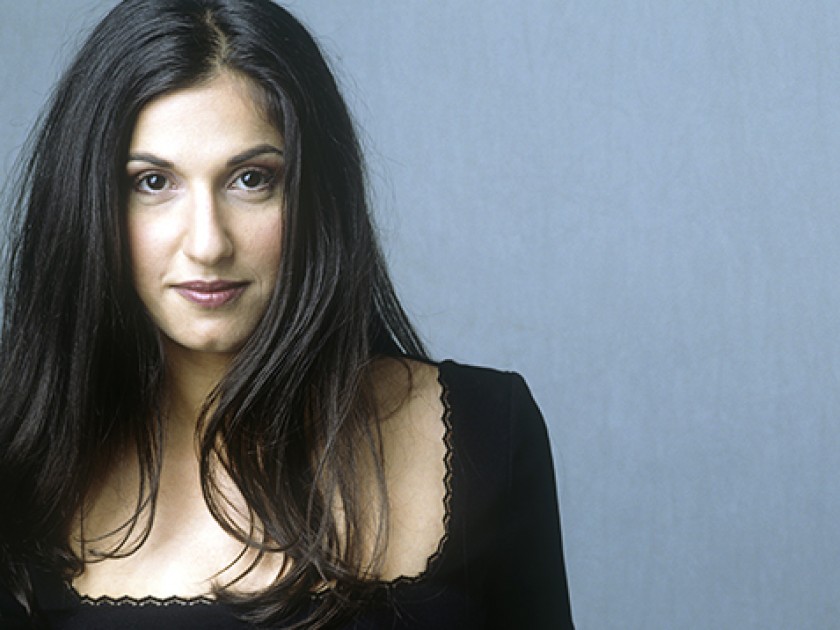
Photo: Isaac Shokal
Dorit Rabinyan recently spoke with Michelle Zaurov for the Jewish Book Council about her newly translated novel All the Rivers.
Michelle Zaurov: Why do you think the Israeli Ministry of Education banned All the Rivers?
Dorit Rabinyan: I think it was because I show the other [Palestinians] to be as human as Israelis. Liat, who is Israeli, allows herself to see Hilmi, a Palestinian, in different ways. She doesn’t avoid stereotypes, she doesn’t avoid feeling fear, suspicion, or all those elements in her education that shaped how Israelis perceive Palestinians. But she allows herself to get more personal knowledge, to acknowledge that someone from the other side is an individual. She explores his identity and sees how much their two identities brush up against each other, and how much they are rooted in the same climate. So, when you read the Ministry of Education’s report, you can see that this is what they were afraid of: They could see the impact of the emotional voyage that my character is going through and it was intimidating for them.
MZ: Is that the message you wanted to convey in this book?
DR: I don’t write novels to send messages. If there is anything from this book that can be summed up in a message, though, it is the feeling that “us” and “them” have this shared destiny that requires acknowledgement. You cannot live your life blinded and self-anesthetized, as many Israelis do.
MZ: I noticed that all the trivialities in Liat’s life seem to reflect her Israeli guilt. Is this common for the average Israeli? Do you think you feel this underlying guilt?
DR: I appreciate your highlighting the guilt that runs through Liat’s character. Even before she meets Hilmi and before she commits this “crime” (according to her Zionist education), she felt guilt. Once she meets Hilmi, she feels that her being on the stronger side of the conflict demands her acknowledgment. It’s not only classic Jewish guilt because she betrays her community and, in a way, turns her back on the religious command not to assimilate. It’s also a very Israeli kind of guilt. My generation is different than the current generation, which is swept up in the nationalistic wave of a more extremist political climate. My generation had tasted the intoxicating drop of promise that it can be different. The peace process of the Oslo Accords under Yitzhak Rabin’s leadership gave us an unforgettable option: Peace was a possibility. The millennials who were banned from reading my book in high school never experienced the possibility that their lives did not have to be dominated and shaped by a conflict. They don’t know that they can be liberated from this burden of being oppressors and occupiers. Even the taste of guilt has been different for my generation than for the current one.
MZ: Do you think this book has made a significant difference in people’s lives?
DR: It starts with feelings, because I don’t open novels to have my mind changed. I open a novel to explore my emotions. All the Rivers suggests empathy. That is the magic that literature has — empathy. Even by dipping into the identity of the narrator and characters you read, it makes you taste what it is to be somebody else.
MZ: You write, “I could not understand how even we, with all of our closeness and love, failed again and again where everyone else had failed all these years.” How does Hilmi and Liat’s relationship reflect the overall conflict?
DR: I don’t think the relationship is a reflection of the conflict, it is more a reflection of the fact that these two young Middle Eastern lovers carry the conflict within themselves. It is not only part of their biography, it is also an element of their personality and their view of the world. It’s who they are. They carry the conflict, the ambivalence, and the complexity of being an Israeli and a Palestinian. There is a balancing act within Liat’s character — the need to keep her Jewish identity safe, and at the same preserve the liberal values that democratic life has given her. Her emotional and mental landscape has been colored? by those two elements: her Jewishness and her liberal and democratic self.
MZ: Has your perspective on Israeli-Palestinian romantic relationships changed throughout your life? How did the novel play a role in that?
DR: I don’t see myself in a position of knowing better about mixing or keeping the Jewish identity going. When I was writing the novel, I had the thought that I should have investigated more by talking to mixed couples. I gave up that idea because my theme wasn’t so much about the love that Liat was experiencing with Hilmi. Of course, it was about the love, but it was more the fear of this opportunity for exploration that she’s been given by diasporic adventure — being away from home. In Israel, this experience is so challenging and demanding. It’s rare for a West Bank Palestinian to come across a Tel Avivan Israeli and to be given the freedom to enjoy one another so fundamentally. But Liat and Hilmi are not swept by this promise of unlimited opportunity. You’re not as much of a free spirit as you wish. You have powers that not only push you, but also pull you back. It’s a devastating acknowledgment about yourself.
MZ: What was the most difficult part of the writing process?
DR: One of my major obstacles was to avoid a certain cliché. Israeli literature, cinema, and art tend to romanticize the conflict, especially when it comes to relationships between men and women from opposite sides of the border. I don’t find anything about the conflict to be romantic; there’s nothing romantic about this kind of a war. At so many points in my story I needed to avoid this danger of making it romantic. Liat and Hilmi are not only politically aware but are also aware of the danger of falling into this trap.
MZ: I know that Liat and Hilmi’s relationship was based on your own relationship with a Palestinian artist. How much of this novel was reflective of that?
DR: It was inspired by a bright, talented, charismatic Palestinian artist named Hassan whom I got involved with in New York when I was living there in 2002. This was the first time I became close with a Palestinian. He was part of a group of Palestinian scholars and artists that I was hanging out with. I was empowered by this encounter and exploration of the other, but I never thought I would write a novel out of it. But there was something so demanding about this relationship. I needed to maintain the dialogue, to keep the conversation that we had going.
MZ: Were you and Hassan as romantically involved in real life as Liat and Hilmi were in the book?
DR: You know, people in real life are not as dramatic as literary characters. We were more easygoing. Our relationship wasn’t as formulated, it was more natural. I made Liat reflective of me in that I took my bad qualities and put them in her: She’s so self-critical, fearful, and honest. But I’m more forgiving toward myself than she is.
MZ: Why did you decide to make her less forgiving?
DR: I was trying to develop an idea, to reflect something about the Israeli Jewish anxiety of being devoured by the neighboring identity, the one you mix with, the one that is so involved with your territory and is so symbiotic with your environment, that you might lose your independent self and get mixed beyond recognition. So, I had to have her more self-aware and more neurotic than myself.
MZ: You mentioned that Hebrew was a reflection of your nature. But this novel has been translated into many other languages – do you feel like the translations take anything away from the Hebrew text?
DR: I am fortunate to have such brilliant translators; in the English translation it’s Jessica Cohen. She’s has done marvelous work on my book. – I feel that my poetry is being sung through her throat. This is actually the only translation that I can read and appreciate.
MZ: What do you think the title signifies about your beliefs regarding the Israeli-Palestinian relationship?
DR: When my editor at Random House suggested “All the Rivers” I thought it had a poetic resonance. It takes the theme of the sea and puts it at the front of the novel. It doesn’t say the sea, but it implies that all the rivers run to the sea. The sea captures so much of our desires and so much of our anxieties; it plays a major role not only in the novel but also in the conflict. It’s the only force of nature that is still biblical, that is the same and hasn’t changed. The land has changed and the landscape can be reshaped but this is the view that both our and their ancient ancestors, who were also around this region, saw when they looked westward. If there’s a conclusion to come to, it is that they’re not that different. They have so many more similarities, being brought up under the sun and facing this view. What may be seen as a wall is only a curtain. It’s intimidating to acknowledge how much you have in common with your enemy.
MZ: Why did you decide to split the novel into seasons?
DR: Because of the winter. I wanted to have winter play a role in the story line and in the engagement of their two identities and alienation toward the New York harsh climate. It emphasized their Levantine identities and mutual sense of exile. It put a spotlight on how winter plays a role in their homesickness. It’s not so much the ground or the soil that they miss when they want to return home — they want to feel the warmth of their homeland.
MZ: In the last scene Hilmi and Liat are taking a picture together and Hilmi asks, “Are you smiling?” Why did you decide to end the book with that moment?
DR: It brings me back to Liat’s difficulty imagining her and Hilmi in a shared partnership in which she has to maintain a division, a separation between her Israeli identity and his Palestinian identity. Hilmi sees a romantic, intimate relationship as a wholeness or togetherness; it’s to have the two identities become one. She’s so fearful of being devoured, of being mixed, of feeling washed by the Arab colors that she keeps wishing for a two-state solution. The two-state solution and the one-state solution are their ways of seeing love, not only the conflict. I’m playing a duet between being an individual and being part of a team. There’s another duet that I’m playing: the fear of love and the fear of peace. Liat’s fear of getting involved with no boundaries may be reflective of the Israeli fear of harmonious existence as Jews within this Islamic region. Maybe there is a subconscious fear in the Israeli collective mind that fears peaceful assimilation. This unknown anxiety that pounds within the minds that refuse to acknowledge how much we have in common, how much our Jewishness runs through the Arabs.
MZ: What are you working on now?
DR: I’m playing around with some thoughts of writing a play. It’s a different language than literary writing but it’s also very demanding. I’ve written a script for a movie and I have a partner with whom I’m developing an idea for a TV series. I’m thinking maybe it’s the time to develop my storytelling skills into different forms, to taste different aspects of my talent.
MZ: What about the content? Will you still be focusing on the general theme of cultural divides or Israeli-Palestinian identity?
DR: It’s Israeli life that I describe because it’s the one that I’m coping with. My antennae respond to the tensions around my personal life and it’s always a reflection of subconscious powers that run under my reality.
Michelle Zaurov is Jewish Book Council’s program associate. She graduated from Binghamton University in New York, where she studied English and literature. She has worked as a journalist writing for the Home Reporter, a local Brooklyn publication. She enjoys reading realistic fiction and fantasy novels, especially with a strong female lead.
